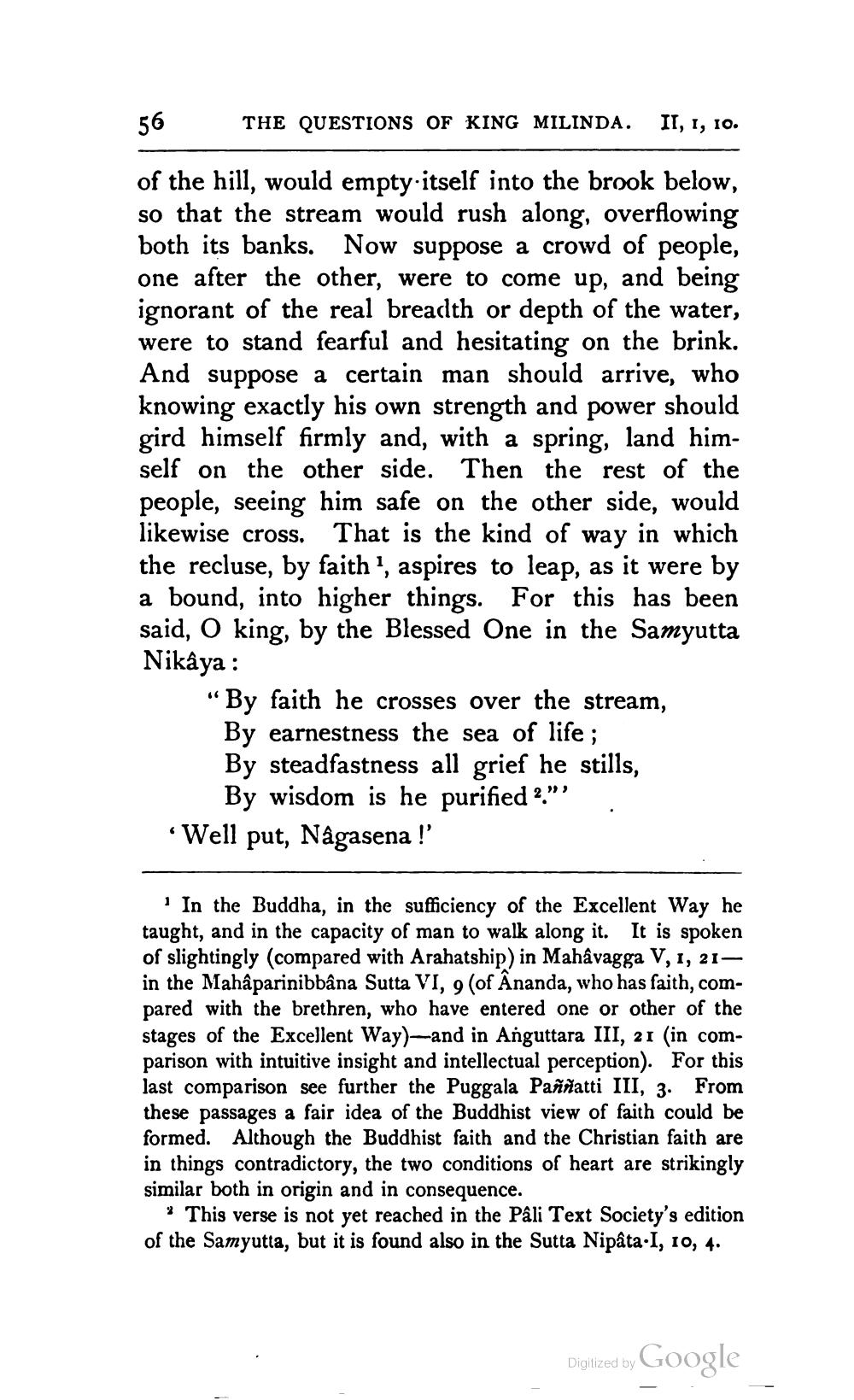________________
56
THE QUESTIONS OF KING MILINDA.
II, 1, 10.
of the hill, would empty.itself into the brook below, so that the stream would rush along, overflowing both its banks. Now suppose a crowd of people, one after the other, were to come up, and being ignorant of the real breadth or depth of the water, were to stand fearful and hesitating on the brink. And suppose a certain man should arrive, who knowing exactly his own strength and power should gird himself firmly and, with a spring, land himself on the other side. Then the rest of the people, seeing him safe on the other side, would likewise cross. That is the kind of way in which the recluse, by faith', aspires to leap, as it were by a bound, into higher things. For this has been said, O king, by the Blessed One in the Samyutta Nikâya :
“By faith he crosses over the stream, By earnestness the sea of life; By steadfastness all grief he stills,
By wisdom is he purified ?." Well put, Nagasena !
In the Buddha, in the sufficiency of the Excellent Way he taught, and in the capacity of man to walk along it. It is spoken of slightingly (compared with Arahatship) in Mahâvagga V, 1, 21in the Mahậparinibbâna Sutta VI, 9 (of Ananda, who has faith, compared with the brethren, who have entered one or other of the stages of the Excellent Way)--and in Anguttara III, 21 (in comparison with intuitive insight and intellectual perception). For this last comparison see further the Puggala Paññatti III, 3. From these passages a fair idea of the Buddhist view of faith could be formed. Although the Buddhist faith and the Christian faith are in things contradictory, the two conditions of heart are strikingly similar both in origin and in consequence.
* This verse is not yet reached in the Pali Text Society's edition of the Samyutta, but it is found also in the Sutta Nipâta.I, 10, 4.
Digitized by Google
Digitized by




